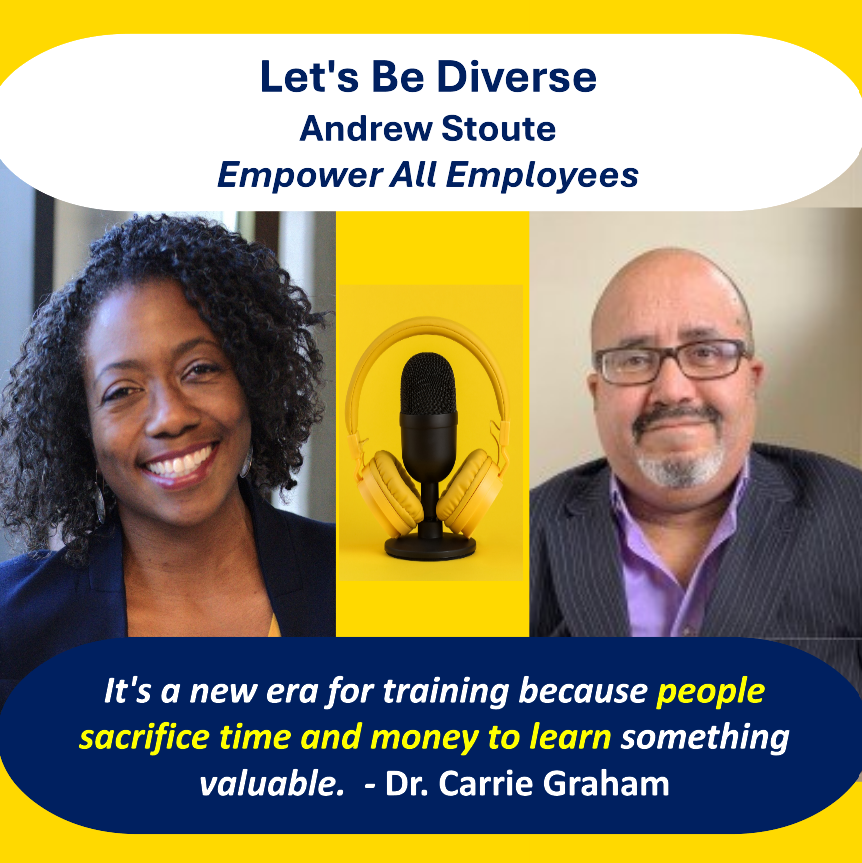
In this episode of Let's Be Diverse, host Andrew Stout interviews Dr. Carrie Graham about her journey from being a shy child who never fit traditional expectations to becoming an adult learning strategist who transforms workplace training. Dr. Graham shares her personal story of being the only person of color in many educational and professional settings, earning average grades despite working hard, and consistently experiencing ineffective training programs that left her watching the clock. Her frustration with poorly designed training experiences motivated her to develop better approaches to professional development plans that actually empower employees. The conversation explores common misconceptions about adult learning, including the over-reliance on AI and one-size-fits-all approaches. Dr. Graham emphasizes her ERA framework (Engagement, Retention, Application) and explains how adult learners bring rich life experiences that must be acknowledged and leveraged in training programs. She discusses the importance of customizing learning journeys for both individuals and organizations, sharing how her naturally quiet, listening-focused personality became a strength in developing training and development programs. The episode highlights the critical difference between reactive versus proactive approaches to training, with companies that seek help before crisis situations achieving better outcomes. Dr. Graham stresses the importance of understanding your audience deeply, asking thought-provoking questions, and creating training experiences that people can actually apply in their work, ultimately leading to better leadership qualities and organizational success.
Listen Here > https://www.youtube.com/watch?v=CQO5ApCAZHk
Dr. Graham emphasizes that effective training and development must start with deep understanding of the learners' backgrounds, motivations, and life experiences, moving beyond demographic information to create truly customized learning journeys. She advocates for the ERA framework (Engagement, Retention, Application) as a comprehensive approach to professional development plans that empowers employees by acknowledging their rich experiences while providing practical skills they can immediately apply to achieve business goals.
Listen Here > https://www.youtube.com/watch?v=CQO5ApCAZHk
Read > Impact of Microaggressions and Mentorship
Subscribe > C.A.L.M. Email for weekly industry insights
Get practical tools, strategies, and resources to design and deliver impactful training programs — right in your inbox.